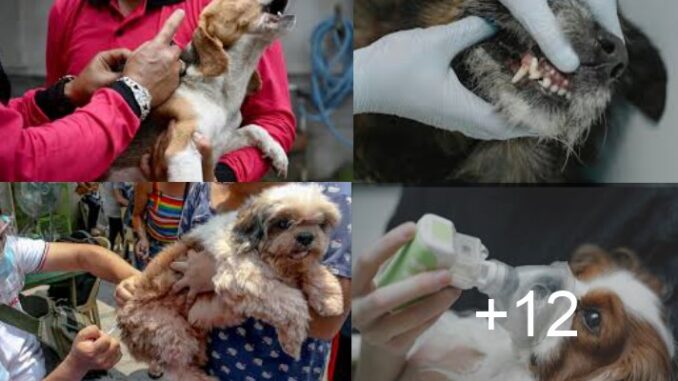
The MSU Veterinary Diagnostic Laboratory (VDL) has recommended three things to do on dogs to avoid the new Michigan sickness that is spreading.
Samples from dogs with severe vomiting and diarrhea are still being tested for diagnostic purposes by the MSU Veterinary Diagnostic Laboratory (VDL) as part of the ongoing inquiry into allegations of sickness in Michigan pets.
Although parvovirus is the likely source of these clinical symptoms,
there are several other possible causes of acute gastroenteritis in dogs,
such as various bacterial, viral, parasitic, and protozoal illnesses.
The majority of samples that were submitted had positive PCR results for canine parvovirus.
Other frequent infections linked to gastrointestinal disorders, like giardia, have also been identified in Michigan dogs by the MSU VDL.
The dogs at the MSU VDL that tested positive for parvovirus by PCR thus far have no history of full immunization.
All isolates are canine parvovirus-2c (CPV-2c), the most prevalent antigenic variant circulating in North America, according to sequencing.
There is no proof that the Michigan strains of CPV-2c are less likely to be protected by complete immunization or more virulent.
The scientific literature has long recognized that point-of-care (POC) testing for parvovirus are less sensitive than laboratory techniques like PCR, as was mentioned in earlier updates.
In order to investigate potential approaches to improve the sensitivity of POC tests,
the MSU VDL will keep testing and characterizing more samples.
In situations where parvovirus screening tests come back negative but the clinical presentation is compatible with parvovirus infection, we nonetheless urge veterinarians to seek further diagnostics.
If you have any queries concerning sample collection,
submission, or diagnostic choices,
please contact the MSU VDL at 517.353.1683.
To keep their animals safe, owners are advised to follow these easy steps:
Make sure your dog or puppy gets vaccinated against canine parvovirus, rabies, canine distemper,
adenovirus, parainfluenza, and leptospirosis by a veterinarian to maintain up-to-date immunization records.
To keep them safe and healthy,
make sure dogs and puppies are completely vaccinated before socializing with other animals.
If a dog or puppy shows any symptoms of disease,
keep them at home and away from other dogs.
You should also call your veterinarian.
When you walk in public with your pet,
make sure to clean up after them and keep them away from other animals’ excrement.
To keep their animals safe, owners are advised to follow these easy steps:
- Make sure your dog or puppy gets vaccinated against canine parvovirus, rabies, canine distemper, adenovirus, parainfluenza, and leptospirosis by a veterinarian to maintain up-to-date immunization records.
- To keep them safe and healthy, make sure dogs and puppies are completely vaccinated before socializing with other animals.
- If a dog or puppy shows any symptoms of disease, keep them at home and away from other dogs. You should also call your veterinarian.
When you walk in public with your pet, make sure to clean up after them and keep them away from other animals’ excrement.
For more related news:https://sportviewers.com

Leave a Reply